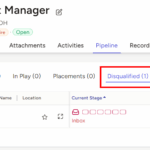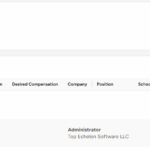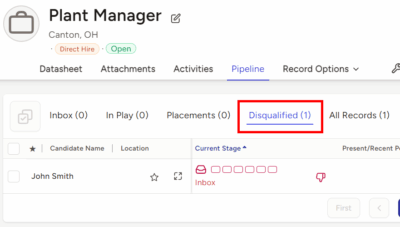In today’s recruiting environment, simply “working hard” isn’t enough. Clients are more demanding, candidates are more selective, and competition is fierce. To thrive, recruiters must master a mix of mindset, strategy, and accountability.
Few trainers know this better than Barb Bruno, CPC/CTS, president of Good as Gold Training. Through her decades of experience coaching recruiters worldwide, Bruno has built a reputation for clear, actionable advice that helps professionals consistently exceed expectations.
“Your success is 10% what happens to you and 90% how you respond,” Bruno says. “The recruiters who succeed are the ones who stay solution-focused, regardless of the obstacles in front of them.”
This article unpacks the principles Bruno teaches—mindset, metrics, clarity, and relationships—while expanding them into actionable strategies recruiters can put into practice immediately.
1. Mindset: Your Greatest Advantage
Every recruiter knows the highs and lows of the job. One moment you’re celebrating a placement; the next, you’re dealing with a candidate who ghosts before an interview.
According to Bruno, the difference between top producers and everyone else often boils down to mindset.
“Choose to control your attitude and surround yourself with individuals who uplift and challenge you,” she advises.
Why Self-Talk Matters
Your inner voice directly impacts performance. Negative self-talk—“I’ll never fill this role”—creates paralysis. Positive self-talk—“What’s the next step I can take?”—creates momentum.
Bruno encourages recruiters to adopt a simple mantra when challenges arise: “So what—what’s next?” This shift reframes problems as opportunities to act instead of reasons to stall.
The Influence of Your Circle
The people you surround yourself with matter just as much as your self-talk. “If you’re around complainers, you’ll start to complain too. If you’re around high performers, you’ll raise your standards,” Bruno notes.
In recruiting—where rejection is part of daily life—a resilient mindset is not optional. It’s your greatest competitive advantage.
2. Setting Expectations: Clarity Builds Trust
Recruiting is a relationship-driven business, but relationships falter when expectations aren’t clear. Too often, misunderstandings happen because recruiters, clients, and candidates assume they’re on the same page when they aren’t.
Bruno emphasizes the need for written expectations. “Every firm operates differently. If you don’t clearly define the rules of engagement, you open the door to confusion and disappointment,” she says.
For Candidates
Spell out what candidates can expect from you—regular updates, interview preparation, honest feedback. Then define what you need from them—responsiveness, transparency, and follow-through.
Recruiters who position themselves as trusted career advisors, rather than transactional go-betweens, not only help candidates land jobs but also earn long-term loyalty.
For Clients
Similarly, Bruno urges recruiters to outline their placement process step by step. “Clients need to know what’s required on their end for you to be successful—accurate job specs, timely feedback, and access to decision-makers,” she explains.
By educating clients on how their responsiveness impacts outcomes, recruiters shift from vendor status to strategic partner.
3. Accountability: Tracking the Right Numbers
Hard work without measurement is wasted effort. The most successful recruiters treat their desks like businesses, complete with measurable performance goals and daily accountability.
“Consistent success requires tracking and hitting your daily targets,” Bruno says.
Breaking Down Income Goals
Start by identifying your annual income target. Then, break it into quarterly, monthly, weekly, and daily benchmarks. For example, if you want to earn $150,000 this year, how many placements does that require? How many job orders? How many candidate presentations?
This process translates big goals into manageable daily actions.
The Metrics That Matter
Bruno identifies several critical metrics recruiters should track daily:
-
Recruiting calls and outreach
-
Interviews scheduled
-
Candidate presentations
-
Job orders generated
-
Placements and fills
When tracked consistently, these numbers reveal whether you’re on pace to hit your goals—or if you need to course-correct.
Ratios Tell the Story
“If your placement ratios are off, you need to ask why,” Bruno says.
-
High placement ratios with few job orders may mean you’re too selective—or your client pool is too narrow.
-
Low recruiting ratios may suggest weak sourcing channels or insufficient pre-screening.
Analyzing ratios allows recruiters to refine their processes for maximum efficiency.
4. Goal Setting: From Vision to Execution
Ambition without structure is just wishful thinking. To achieve lasting success, recruiters must turn goals into clear, actionable commitments.
Bruno recommends writing down ten non-negotiable goals, each supported by five dated action items.
“Display your goals where you can see them every day. Visibility keeps you accountable,” she says.
Example Goal Framework
-
Goal: Generate $250,000 in placement revenue.
-
Action Item: Make 15 outbound BD calls daily.
-
Action Item: Build 5 new client relationships by end of Q1.
-
Action Item: Launch a referral program by March 15.
-
Action Item: Track revenue weekly.
-
Action Item: Attend two networking events per month.
Weekly Review Process
Bruno encourages recruiters to conduct a 30-minute weekly review. This should include:
-
Assessing performance against benchmarks.
-
Identifying and eliminating timewasters.
-
Implementing one new strategy every 21 working days.
This rhythm ensures continuous improvement without overwhelming change.
5. Relationships: The Real Currency of Recruiting
While metrics keep recruiters on track, relationships are what drive sustainable success.
“Staffing and recruiting is a relationship-driven business,” Bruno says. “If you aren’t building trust, you’re losing opportunities.”
With Candidates
Recruiters who position themselves as advisors—helping candidates evaluate offers, navigate interviews, and plan career growth—earn more than short-term trust. They become long-term partners in a candidate’s career.
With Clients
Clients don’t want recruiters who simply forward resumes. They want partners who understand their business, anticipate needs, and provide market insight. Bruno puts it simply: “Be the recruiter who clients call before they even write the job description.”
Nurturing Connections
Relationships need care. Checking in regularly, sharing industry insights, and celebrating milestones keeps recruiters top of mind. Strong connections lead to referrals, repeat business, and loyalty.
6. Energy and Enthusiasm: The X-Factor
Recruiting is demanding, but enthusiasm fuels longevity. Bruno urges recruiters to bring joy and humor into their work.
“Success isn’t just about hitting numbers—it’s about maintaining your energy. A positive attitude attracts both candidates and clients,” she notes.
Why Positivity Wins
Candidates want to work with recruiters who lift them up, not drag them down. Clients prefer partners who project confidence and optimism. Energy is contagious, and enthusiasm makes recruiters memorable.
Avoiding Burnout
Of course, energy requires balance. Protecting your health—physical and mental—is essential for sustainability. Establish boundaries, take breaks, and prioritize recovery to maintain peak performance.
7. Commitment to Growth: Never Stop Improving
The best recruiters are lifelong learners. Markets evolve. Technology advances. Candidate expectations shift. Those who stop learning quickly fall behind.
Bruno challenges recruiters to embrace change: “Every 21 days, implement one new strategy. Over time, these improvements compound into extraordinary results.”
Process Refinement
Constantly evaluate your workflow. Can certain administrative tasks be automated? Are you maximizing sourcing channels? Are referrals underutilized? Small tweaks can unlock significant efficiency.
Professional Education
Stay current by reading industry reports, attending webinars, and participating in associations. Knowledge builds credibility and allows recruiters to advise clients and candidates with authority.
Leveraging Technology
From AI-powered sourcing to automation tools, technology can dramatically improve efficiency. Bruno warns against resisting innovation: “If your competitors are leveraging new tools and you aren’t, you’re already behind.”
8. From Consistency to Mastery
When mindset, clarity, accountability, relationships, and growth converge, recruiters move beyond just “making placements.” They become trusted advisors who drive careers and build businesses.
Bruno summarizes it this way: “Crushing your goals becomes the natural outcome when you commit to growth, refine your processes, and maintain the right mindset.”
Conclusion: Redefining Success in Recruiting
The recruiting landscape will always be challenging. But by adopting the principles outlined by Barb Bruno—clarity, accountability, positivity, and continuous growth—recruiters can consistently exceed expectations.
Ultimately, success isn’t defined by external circumstances but by daily choices. Choose resilience over defeat. Choose clarity over assumptions. Choose growth over stagnation.
Do that, and you won’t just meet your goals—you’ll crush them.








